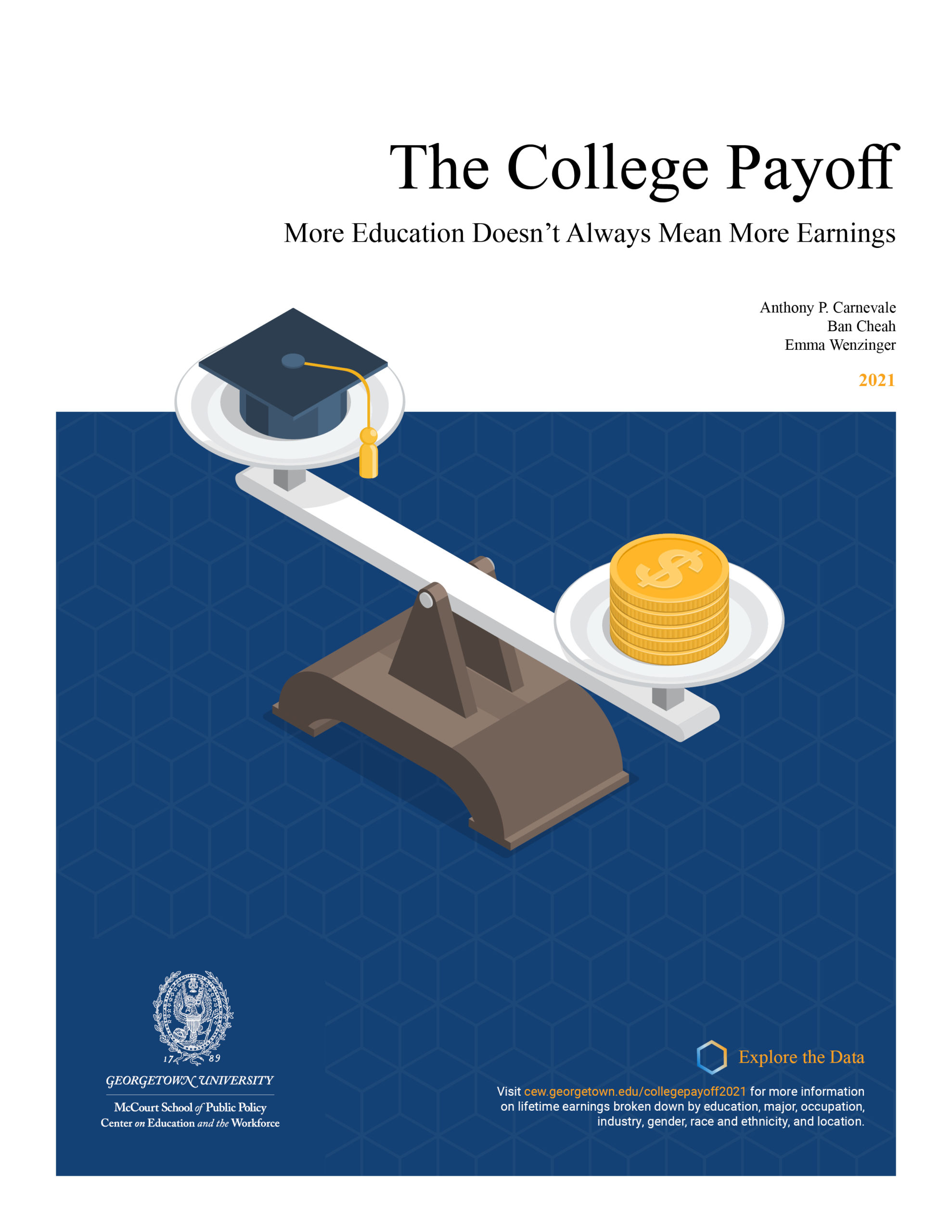The College Payoff
More Education Doesn’t Always Mean More Earnings
Summary
The College Payoff: More Education Doesn’t Always Mean More Earnings explores how lifetime earnings vary by education level, field of study, occupation, industry, gender, race and ethnicity, and location. The lifetime earnings of a full-time full-year worker with a high school diploma are $1.6 million, while workers with an associate’s degree earn $2 million. However, at least one quarter of high school graduates earn more than an associate’s degree holder. Bachelor’s degree holders earn a median of $2.8 million during their career, 75% more than if they had only a high school diploma. Master’s degree holders earn a median of $3.2 million over their lifetimes, while doctoral degree holders earn $4 million and professional degree holders earn $4.7 million. However, one quarter of workers with a bachelor’s degree earn more than half of workers with a master’s or a doctoral degree.
Explore the Data
Source: Georgetown University Center on Education and the Workforce analysis of the US Census Bureau, American Community Survey (ACS), 2009–2019.
Note: The figure is based on data for 25- to 64-year-olds working full-time, full-year.
Resources
The College Payoff: More Education Doesn’t Always Mean More Earnings explores how lifetime earnings vary by education level, field of study, occupation, industry, gender, race and ethnicity, and location.


